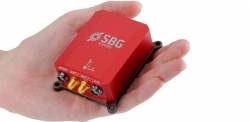The European Union Agency for the Space Program (EUSPA) has published a technical document laying out the main characteristics of the new Galileo Emergency Warning Satellite Service (EWSS).
Galileo satellites will transmit emergency warning messages directly to Galileo-enabled smartphones and other navigation devices. Included will be information related to the hazard, such as type, severity, expected onset and duration, as well as location of the affected area and instructions to follow. The alert content will be generated by national authorities and transmitted to Galileo for broadcast.
Speaking at the 2024 European Union Space Policy Conference in Brussels, Fiametta Diani, Head of Market, Downstream and Innovation at EUSPA, said, “With this new document, some of our key stakeholders can already start to work with this new service. Civil protection authorities in the member states can start to prepare for how they will manage the alert messages they will send via Galileo. The same goes for the receiver and chipset communities, who will have to process this message.”
In 2023, EUSPA began testing the EWSS in different locations in Europe. “We have run trials in Toulouse and in Germany, specifically with a simulated explosion,” Diani said, “like what you might see with an industrial accident. We have also tested a tsunami alert in Cyprus.” The Union is developing the tsunami application together with Japanese partners.
“We have also just finished a test here in Belgium and in Luxembourg related to floods,” Diani said, “which is unfortunately a problem that affects us more and more in the summer in these countries.”
New service coming soon
Diani said EUSPA plans to launch the new EWSS in 2025. “As for the receivers, we are working to get our chipset and receiver industry ready,” she said. “This is a process we are also supporting with our Fundamental Elements program.” Fundamental Elements is an EU funding mechanism supporting the research and development of European GNSS-enabled chipsets, receivers and antennas. Fundamental Elements projects are part of the overall strategy for European GNSS market uptake, led by EUSPA.
“We want to help them find the most efficient way to process the message,” Diani said. “And we are also working, for example, with Google, because they own one of our most used operating systems in smartphones, so we need them to get on board to be able to fully exploit the EWSS.”
Ignacio Alcantarilla Medina of the European Commission said it will be the member states and their national civil protection authorities who initiate warnings. “They will send a message to the Galileo system,” he said, “and then Galileo will transmit that message through its satellite signals to the users. The service will be delivered worldwide, free of charge, so this is a very good backup to the already existing mobile network warning systems, which can actually be affected by the emergencies they are warning about.”
“The most important thing here is helping people and saving lives in the real world,” said Diani, “so we are working very hard to get this service started as soon as possible.”






